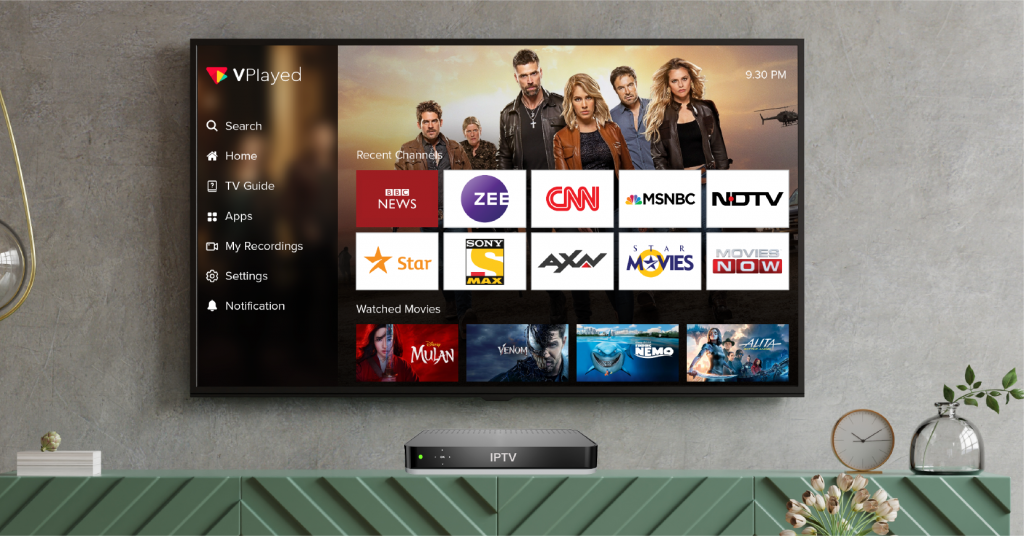Lately, our television consumption habits has experienced a significant transformation. Due to the emergence of streaming platforms, classic broadcasting seems to be giving way to newer technologies that cater to the constantly changing tastes of viewers. A notable technology that's gained significant popularity is IPTV, which stands for Internet Protocol Television. This cutting-edge form of television delivery has sparked discussions concerning the future of viewing habits and the potential it holds for reshaping how we view entertainment.

IPTV is distinguished by delivering television content over the internet rather than using traditional satellite or cable services. ptv-abonnements.org enhances accessibility but also gives viewers more power to manage their viewing choices and schedule. As we delve deeper into IPTV's details, it becomes essential to grasp what it means for the TV industry as well as how it aligns with the increasing need for personalized and convenient viewing experiences.
Grasping IP-based Television Technology
IPTV, or Internet Protocol Television, represents a means of delivering TV programs via the digital network instead of traditional over-the-air, satellite, plus cable formats. Such technology enables users to stream live TV plus on-demand content over their broadband connections. By using IP networks, IPTV provides an interactive viewing experience that allows consumers to access a variety of stations and content at their convenience.
The core of IPTV technology is found in how it delivers video data. As opposed to traditional broadcasting techniques that send signals to a large number of viewers, this system sends content packets straight to a consumer's device. This enables improved bandwidth efficiency and is able to provide a better viewing experience, like high-definition video and interactive features. Viewers can view programs on multiple devices, including smart TVs, desktop machines, tablets, plus cell phones, making it highly customizable to modern entertainment trends.
Furthermore, these services typically feature sophisticated options like VOD, digital video recording, and the ability to pause or rewind live TV. These features provide a customized viewing experience favoring current viewers seeking freedom and command over their media consumption. As this technology evolves, it continues to changing how viewers consume TV programming potentially characterize the future of the way we consume entertainment.
Advantages of IPTV Over Traditional TV
One of the significant advantages of IPTV is its flexibility and convenience. In contrast to traditional television, that requires users to follow a fixed schedule for programming, IPTV allows viewers to watch content on demand. This means users can choose what to watch and when to watch it, resulting in a more personalized viewing experience. This shift caters to the modern viewer's busy lifestyle, making it more convenient to enjoy shows and movies at their convenience.
A further benefit of IPTV is the variety of available content. IPTV services often provide access to a broader range of channels, including special interest programs and international programming that may not be available through traditional cable packages. Additionally, many IPTV providers offer a variety of additional features such as catch-up TV, replay capabilities, and integration with streaming services, enhancing the overall content library and viewer satisfaction.
Affordability is another reason many people are turning to IPTV. Traditional cable subscriptions can be pricey and often come with contractual obligations. In contrast, IPTV services frequently offer more competitive pricing models, allowing users to choose plans that best fit their budget without sacrificing quality. This shift toward affordable options has made IPTV an attractive alternative for those looking to reduce costs while still enjoying high-quality television. spintax ### Issues and Prospective Outlook for IPTV
In spite of increasing popularity of IPTV, it encounters various challenges that may influence its trajectory. One significant hurdle is the dependence on web services. In areas where internet access is limited or variable, IPTV can have trouble to deliver a seamless viewing experience. This can result in buffering and lower quality streams, which may frustrate users and discourage them from embracing IPTV services. Additionally, as more users shift to digital content, the appetite for data rises, potentially overwhelming existing systems.
One more obstacle is media licensing and compliance. IPTV providers must deal with a complicated landscape of copyright laws which can inhibit the availability of particular channels or content. Major broadcasters and content creators often have special rights that can limit how IPTV services package and distribute their content. This can create a disjointed viewing experience for users, as they may not have the option of viewing all the channels they desire through a single IPTV service.
In considering the upcoming years, the forecast for IPTV stays promising. As technology continues to advance, we can look forward to advancements in network connectivity and overall streaming performance. Additionally, the growth of 5G technology may enhance mobile IPTV offerings, giving users more flexibility and higher quality streams on the go. As IPTV providers innovate and secure better licensing agreements, there is opportunity for an enriched content selection that caters to diverse viewing interests, making IPTV an increasingly compelling alternative to traditional cable services.
